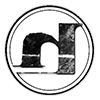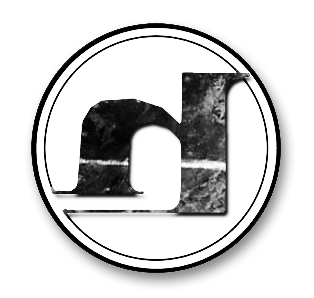
My Favourite Dictators And Why
I have been fascinated by dictators from a very young age. My father, who was Czech, suffered greatly thanks to Hitler and then Stalin before he migrated to Australia in the 1950s. There were many books on World War II and the Cold War in our house, and I was looking through these even before I could read.
I have long had a fascination with eccentrics and written about them extensively, most notably in my book The Eccentropedia. My interest in dictators is in some ways an extension of that, as they are usually very strange people with a great many peculiarities. I hasten to add though that, for me, eccentrics are generally benign individuals, while dictators are obviously not. The fundamental difference, I would say, is that most dictators would have been completely normal, probably boring people if they had never attained absolute power.
The most surprising thing I found while researching the book was how little I knew about these people, when I thought I knew quite a lot. It was particularly difficult finding details about their private lives (which is a focus of my book) because most books about dictators are political or academic studies which often only mention their private excesses in passing. Gaddafi was probably the biggest surprise. He was admired by many in his early years for his supposed progressivism, and in his later years was feted as a friend of the West by the likes of Tony Blair. But in person, he was little more than a compulsive rapist of anything with a pulse, and the most vile human being I know of. I had to have a shower after I finished writing about him. Mao was another eye opener. Despite being the worst mass murderer in history, the view of him, both in China and outside it, is still relatively positive, with nothing like the opprobrium heaped on Hitler or Stalin.
The view of him, both in China and outside it, is still relatively positive, with nothing like the opprobrium heaped on Hitler or Stalin
My Favourite Dictators looks at the politics of each dictator’s rise to power and (in most but not all cases) downfall, but unlike most books on the subject concentrates on the personalities, peculiarities and private lives of these invariably strange human beings. You will read of their generally voracious sexual appetites, effortless cruelties, ostentatious uniforms, love of terrible art, pretensions to being great writers, and appalling taste in interior decoration. After an introduction examining the concept of dictatorship and the similarities and differences between various dictators, the book takes an in-depth look at the following.
Benito Mussolini
Mussolini became Italy’s leader in 1921. He was immensely popular in Italy in his early years, and hailed as a great statesman by people like Churchill. Key to his popularity was his virility, and so many women wanted sleep with him that he had an office opened to sift through the requests. (Successful candidates were generally allotted half an hour with il Duce, whose preferred place for making love was the floor.) Hitler worshipped Mussolini, and copied him. Mussolini was far less impressed by Hitler, but threw in his lot with him after the war began. It was a disastrous decision, his popularity plummeted, and he ended up strung up by his heels in a public square with his favourite mistress hanging next to him.
Enver Hoxha
Hoxha (pronounced Hodja) was the communist dictator of the Albania for over 40 years. During that time he managed to almost completely isolate his country from the outside world. Albanians were unable to leave the country, and almost all foreign books and films were banned. (Although he made a number of strange exceptions, including the films of knockabout British comedian Norman Wisdom, who became a cult figure in Albania.) Hoxha was a dictator in the Stalinist mould who conducted endless purges, By the end of his rule, virtually every one of his comrades from his early years had been executed.
Mao Zedong
Coming to power in 1949, Mao was hell-bent on making China an industrial powerhouse, but his recipes for doing so were disastrous – the Great Leap Forward, launched in 1958, resulted in some 45 million Chinese starving to death. In his private life, Mao spent most of his time in a large bed, and had an insatiable appetite for young girls, who were brought to him on an almost industrial scale. During the mid-60s, fearing the purity of his revolution was being betrayed, he launched a final catastrophe in the Cultural Revolution.
Francois Duvalier
Duvalier, or ‘Papa Doc’, began his career as a doctor and ethnographer interested in voodoo. Throughout his years as the dictator of Haiti, the impassive, inscrutable dictator was widely believed to be a voodoo priest who made charms out of the body parts of his enemies. His rule was characterised by his terrifying private police force, the Tontons Macoutes, who were given free reign to terrorise and kill. Under his rule, Haiti became the poorest country in the Western Hemisphere, and remains so today.
Romania’s Ceaușescu
An uncommonly drab and uncharismatic dictator, Romania’s Ceaușescu was matched in frightfulness by his wife Elena. For a while, he was feted by the West for standing up to the USSR, but there were few things more feared than a state visit by the Ceaușescus, whose entourage were known to pilfer anything not nailed down Ceaușescu clung to power for decades, but he couldn’t survive the revolutions of 1989, when he and Elena were put up against a wall and shot.
Jean-Bédel Bokassa
Bokassa, a former officer in the French army, became president of the Central African Republic, and in 1977 had himself crowned emperor in a ceremony where he sat on a huge golden throne in the shape of an eagle. An extremely vain man, he like to strut around in uniforms dripping with medals he had awarded himself. His regime was funded by the French government, but when his brutalities grew too embarrassing, he was unceremoniously booted out.
Ferdinand Marcos
Marcos may have begun his career by murdering a political opponent of his father when he was a teenager, but he was less bloodthirsty than most dictators. Instead, he and his glamorous wife Imelda concentrated on raiding the coffers of the Philippines, with Imelda becoming notorious for her huge collection of shoes. Marcos’s claims to have been a great resistance hero during World War II were entirely spurious, but he is still fondly thought of by many in the Philippines, where his children are still involved in politics.
Muammar Gaddafi
Gaddafi seized power in Libya in 1969, in a military coup he had been planning since he was a teenager. With his political manifesto, The Green Book, he upended Libyan society, introducing his own peculiar form of socialism along whit a host of other weird ideas. He used his oil money to bankroll violent revolutionary movements around the world, and grew more debauched as the years went by. It was well known within Libya that he was a transvestite, and towards the end, he was spending almost every waking moment raping women and men (including the wives of his general – and his generals.)
Idi Amin
The buffoonish Amin, Uganda’s ‘Big Daddy’, became a figure of fun in the West, but this often disguised a dictator as brutal as any. He was famed for his musical performances, love of Scotland (he offered to be its king), and (alleged) cannibalism and penchant for keeping the heads of his victims in his fridge. Fleeing Uganda after an invasion by Tanzania, he went into comfortable retirement.
Saddam Hussein
Saddam was famed for the iron grip he had on Iraq, and the brutality of his regime. Posing as the benevolent father of his country, he fostered a pervasive personality cult, He considered himself a military genius, but his military ventures, the war with Iran and invasion of Kuwait, only resulted in crippling Iraq’s economy. He spent most of his last few years writing romantic novels.
Kim Jong-il
After succeeding his father, Kim Il-sung, Kim Jong-il became the world’s first hereditary communist leader in history. His greatest love was the cinema, and he amassed the largest ever private collection of movies from all around the world. and supervised the production of many movies. As many North Koreans starved, his lavish private life was fueled by imported luxury goods, cigarettes and brandy. When it came time for him to decide on who should be his successor, he picked the meanest of his sons – Kim Jog-un.
 |
[su_quote cite=”Saparmurat Niyazov, dictator of Turkmenistan”]I’m personally against seeing my pictures and statues in the streets, but it’s what the people want.[/su_quote] [su_spacer size=”40″] To purchase this book go to My Favourite Dictators: The Strange Lives of Tyrants |
Chris Mikul
Like this article?
Related Posts
Comments
Copyright © Headpress



